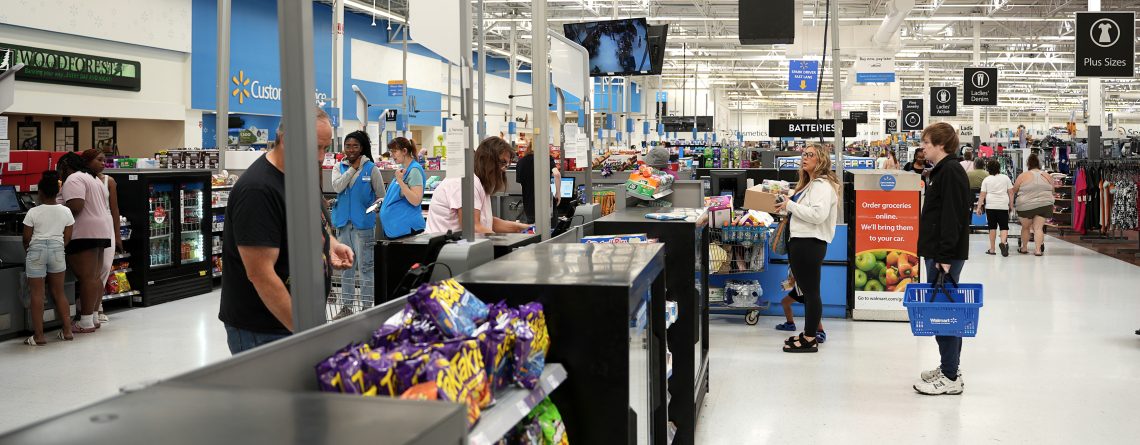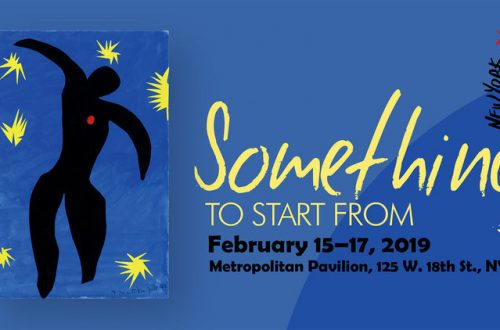by Jon Balsbaugh
“To transform the world, to recreate it afresh, men must turn into another path psychologically. Until you have become really, in actual fact, a brother to every one, brotherhood will not come to pass. No sort of scientific teaching, no kind of common interest, will ever teach men to share property and privileges with equal consideration for all. Every one will think his share too small and they will be always envying, complaining and attacking one another. You ask when it will come to pass; it will come to pass, but first we have to go through the period of isolation.”
— The Mysterious Visitor in Fyodor Dostoyevsky’s The Brothers Karamazov
I am not a patient person — either by nature or by habit.
I tend to value speed, efficiency, innovation. I have all the apps that allow me to order ahead or scan and go. I gave Whole Foods my handprint for quick payment. I sometimes ask my Google Home to find my phone before I’ve even glanced around for it myself. And though I love fine dining and cooking on my own terms, I’m genuinely afraid that if someone invented a bottled drink guaranteed to meet your daily nutritional needs, I would be an early adopter. The self-checkout lane at the grocery store? That was created for people like me.
I am certainly not ready to outright condemn the goods of speed, efficiency, or innovation. Yet I do recognize in myself and the culture around me a disordered attachment to these values. So I decided to do one small thing for Lent this year to push back against my attachments. I gave up those self-checkout lanes. Barring a true emergency, I would take however few items I had through the conventional checkout lane — the one with cashiers, baggers, and conveyor belts that shove your food into a pile at the end. I would do it even if every lane had one of those shoppers who appears to have come in for a monthly stockpile before heading back out to their off-the-grid home in the hinterlands.
I committed to this on a whim, but it wasn’t very long into the penitential season that I was reminded why I prefer to scan and go myself.
It was in Walmart, and I had only a couple of items to purchase, so I headed to the express checkout. This was not the self-checkout, mind you, just the lane for people who have twenty or fewer items. That didn’t feel like cheating to me. There was only one person in front of me. He was an older gentleman who looked like Matthew Cuthbert in Anne of Green Gables. He only had a few items himself, including, most prominently, what looked like a front tire for a wheelbarrow.
Behind the register was a young woman with an ill-fitting vest and an air of inexperience. She took the wheel off the conveyor belt and turned it over several times in her hands, head down, examining it closely. I could only assume she was looking for a way to scan it. Eventually, she looked up at the man hesitantly and said, “People usually buy these back in the tire department.”
Awkward pause.
“So … Do I need to go back there then?” the old man asked.
A longer awkward pause.
“Ummm … let me see if I can call them,” she said, picking up the beige store phone and brushing the hair back from her face.
Time passes.
Finally, she set the phone back in the receiver. “I’m sorry, sir, they’re not picking up … but I think it’s supposed to have a number on here somewhere that we have to enter …” Both of them started turning the tire over and over together, looking for a number I was already certain they weren’t going to find.
Time passes.
The cashier from the next aisle over tried something that didn’t work. People behind me started moving to other open checkout lanes. That did feel like cheating, so I held fast, but I could feel the irritation rising.
“I’m sorry, sir, usually people do this back in the tire area. I don’t think I can…”
Another awkward pause. I almost can’t resist the urge to step in and help.
The old man contemplated. “Let’s see … Do I have time to go back there? I don’t know … No, I don’t want to go all the way back there. Hmmm … Well, what if I just check out these other things I’ve got? Come back later for the tire?”
“Yeah, you can do that.”
So he took the tire and handed it to her clumsily. She fussed around with it for a while until she found a place for it in her little cubby hole, at which point she casually (very casually) started picking up his other items.
Beep … Bag
Beep … Bag
Beep … Bag
He had cash (of course), and when he got the total, he started pulling bill by bill by painful bill out of his wallet — counting, double-checking, and finally handing the correct dollar amount to the cashier. (Thank God he didn’t go for the coins.) Purchase concluded, he shuffled off.
When it was my turn, I approached the register with an audible sigh and a look on my face that was certainly meant to communicate frustration. But at just that moment, I was struck as if by lightning by the words of David Foster Wallace’s Kenyon College commencement address. I took a deep breath. I looked at the clerk. And I reminded myself, “This is water. This is water.”
I don’t know how I had failed to realize the connection between my Lenten promise and that speech before then. It is my all-time favorite speech and certainly one of the greatest commencement addresses ever given. Rarely have I taught a course in which I do not find some reason to play the audio for my students. If nothing else, I just want to do my part to keep it alive.
This is the twentieth anniversary of that speech. It remains relevant after all these years, both for what it says about the unchanging human condition and (more subtly) for how it highlights some of the cultural changes we have experienced since then.
For those who have never heard it, the heart of the speech is Wallace’s account of driving from a challenging white-collar job in rush-hour traffic to a busy, overlit grocery store to shop for dinner. At first, he appears to go on a comic rant about everything involved in this shopping trip: gas-guzzling SUVs, soul-killing muzak, people talking on phones in line, inadequately manned checkout lines, litter in the parking lot, and even that grocery cart “with the one crazy wheel that pulls maddeningly to the left.” Eventually, however, he argues that a certain way of thinking will make it “within your power to experience a crowded, hot, slow, consumer-hell type situation as not only meaningful, but sacred, on fire with the same force that made the stars: love, fellowship, the mystical oneness of all things deep down.”
Situations like this are critical in Wallace’s view because “petty, frustrating crap like this is exactly where the work of choosing is gonna come in.” If we don’t learn to choose how to see life, then we will end up “pissed and miserable” every time we have to go to the grocery store. Why? “Because my natural default setting is the certainty that situations like this are really all about me.” Self-centeredness is literally “hard-wired into our brains at birth.”
“Think about it,” Wallace points out. “There is no experience you have had that you are not the absolute centre of. The world as you experience it is there in front of you or behind you, to the left or right of you, on your TV or your monitor.” Operating according to this default setting, the people around me in the grocery store will never be anything other than “just in my way.”
“And look at how repulsive most of them are,” he continues, “and how stupid and cow-like and dead-eyed and nonhuman they seem in the checkout line, or at how annoying and rude it is that people are talking loudly on cell phones in the middle of the line. And look at how deeply and personally unfair this is.”
Our culture does not offer us much help resisting this line of thinking either. On the contrary:
“The so-called real world will not discourage you from operating on your default settings, because the so-called real world of men and money and power hums merrily along in a pool of fear and anger and frustration and craving and worship of self. Our own present culture has harnessed these forces in ways that have yielded extraordinary wealth and comfort, and personal freedom. The freedom all to be lords of our tiny skull-sized kingdoms, alone at the center of all creation.”
Yet, for Wallace, situations like this ultimately provide a powerful opportunity. The main point of the grocery store story is not the universal experience of “petty frustrating crap,” but the chance to transcend all of that. “The traffic jams and crowded aisles and long checkout lines give me time to think.” And if you allow yourself to imagine possibilities, then you can flip the script.
“Most days,” Wallace says, “if you’re aware enough to give yourself a choice, you can choose to look differently at this fat, dead-eyed, over-made-up lady who just screamed at her kid in the checkout line. Maybe she’s not usually like this. Maybe she’s been up three straight nights holding the hand of a husband who is dying of bone cancer. Or maybe this very lady is the low-wage clerk at the motor vehicle department, who just yesterday helped your spouse resolve a horrific, infuriating, red-tape problem through some small act of bureaucratic kindness.”
Even if such narratives are not likely, as Wallace acknowledges, they are still possible. And because they are possible, we can entertain them as a way of experiencing the world differently, experiencing the world as sacred.
Though Wallace’s speech also touches on big topics like the nature of truth, the value of worship, and the essence of what it means to be educated, it continues to resonate primarily because of the timeless, personal, and intimate exploration of what it means to be human.
At the same time, Wallace’s speech does inhabit a particular time and place, the United States, sometime between the end of late stage capitalism and the rise of whatever is gradually replacing it. And he was a brilliant cultural critic of that moment. From his account of a cruise in “A Supposedly Fun Thing I’ll Never Do Again,” to his analysis of U.S. TV culture that somehow remains relevant in a post-TV entertainment world in “E. Unibus Pluram,” to his ennui-ridden yet brilliantly hopeful novel Infinite Jest, Wallace shone an unrelentingly honest light into every corner of that world.
Most of his analysis of “the so-called real world,” still holds, of course. It is still a world of men, money, and power. We still swim in a pool of fear, anger, and frustration. If anything, our sense of isolation has increased. But there has been a significant if subtle shift in American consumer culture. While similar, my experience of the grocery store is in some ways quite unlike Wallace’s. There is one core difference — a transformation of the cultural dynamics of convenience and inconvenience.
The very same year that Wallace delivered his commencement address at a small liberal arts college in the heart of the Midwest, Amazon founder Jeff Bezos was busy in the Pacific Northwest launching Amazon Prime — one of the many services spawned by Bezos’s brilliant capacity for turning “customer obsession” into massive profit. As he explained in his 2016 letter to shareholders:
“Customers are always beautifully, wonderfully dissatisfied, even when they report being happy and business is great. Even when they don’t yet know it, customers want something better, and your desire to delight customers will drive you to invent on their behalf. No customer ever asked Amazon to create the Prime membership program, but it sure turns out they wanted it, and I could give you many such examples.”
Was 3-6 weeks an irritatingly long time to wait for shipping? Amazon offered two-day, then one-day, then overnight shipping — all for free with a Prime membership. In major metropolitan areas, you can even get same-day or two-hour delivery. I once tested the system by ordering Talenti ice cream in a Minnesota snowstorm. Sure enough, I was enjoying it in my living room well within the promised time frame.
Did anyone ever wonder if you could get a better deal on a particular item if it were used or refurbished? Amazon decided to let its competitors sell used goods on its own platform, right next to its own products, and often at a cheaper price. Why in the world would Amazon do that? Because it was convenient for the customer. Period.
Was it annoying to pay return shipping for a pair of pants you ordered online that didn’t fit? Amazon made returns free and easy. In fact, it’s so easy that the simplest solution to this former inconvenience is just to buy three sizes and return the two that didn’t fit. It’s OK. Amazon’s got your back. Your new digital fitting room is on them.
If you want to understand the dynamics of convenience and inconvenience in our current market, look at a typical customer through Jeff Bezos’s eyes for a moment. Jane Shopper has filed no complaints. She isn’t asking for anything. She doesn’t even know that she wants anything beyond what she already has. But where a customer service survey identifies a “satisfied customer,” Jeff Bezos sees a woman who just doesn’t yet know what she’s missing. And if he pays close enough attention to her habits, to what makes a purchase in any way annoying, difficult, or inconvenient, then he knows he can invent something that will surprise and delight her at the same time. And delighted consumers will keep coming back to the source of that delight.
This Bezos Way has transformed business practices far beyond his own company. Everyone now knows that customer satisfaction, even in areas that seem to cut across the grain of immediate profit, is the way to go. But even more importantly, this shift has changed our relationship to convenience and inconvenience as customers and as human beings.
We are now waited on hand and foot by a vast technocratic empire of hyper-convenient products and services. Uber. Uber Eats. DoorDash. Instacart. Alexa. AI assistants. ChatGPT. The Great Internet of Things. Roomba. Ring. Self-driving cars. Robotic lawnmowers. Androids that can fold laundry. If you live in at least a mid-sized city, it is now literally possible to have your every material need met without leaving your own home. All you need is a little bit of planning and less money than one would think.
The end of inconvenience is upon us.
In 2005, Wallace simply assumed that the grocery store scenario would be a part of those graduates’ experience day-in-day-out for the rest of their lives. Two decades later, that’s no longer the case.
Yes, I can go to the grocery store if I want. But I don’t have to. I can go out shopping for a pair of pants and deal with a clerk who can’t find the tag, if I so choose. But I don’t have to. And if I can have Amazon drop off fresh lettuce, car batteries, exotic spices, a new laptop, paper towels, and organic beef on my doorstep … Well, then, I just don’t have to put up with the “petty frustrating crap” of in-person shopping anymore.
But as we hurtle headlong towards the end of inconvenience, we should stop and ask, “Just what is inconvenience?” Think about my own consumer shopping experience. When you get right down to it, what was ultimately inconvenient in those situations? Was it really about abstract grocery store layouts, the idea of checkout lanes, or the corporate purchasing system for tires? No. It was people. The Cashier who was new and inexperienced. The Old Man who was just being an old man. The Tire Guys who didn’t pick up the phone. The Manager who failed to train his employees properly. Whatever frustration I felt was ultimately directed towards people, specific individuals, persons.
Inconvenience is people.
All sacred relationships are formed in the crucible of inconvenience. Family. Marriage. Lifelong friendship. Religious community. None of it is convenient. Shoot, not even book clubs or bowling leagues are convenient. It’s no coincidence that our culture is coming to view them as increasingly unnecessary. A truly radical transformation in what we mean by “society” and how we experience others is already underway.
So what is one to do? We no longer live under the same conditions as David Foster Wallace did in 2005. The necessity of inconvenience forced him to make an existential choice.
If we are to preserve sacred relationships in a time beyond the end of inconvenience, then we will have to choose inconvenience itself. We will have to deliberately walk paths of greater resistance.
On that note, let me tell you about the rest of my Lenten experience. That single encounter with the Cashier and the Old Man in a conventional checkout lane transformed the remainder of those forty days. From that point on, every time I skipped the self-checkout and moved into the old-school line, it was almost impossible to get angry or frustrated at the inconvenience. With a simple choice, I had already announced to myself that I bought into the whole package (inconvenience, people, culture, society, life). What I “bought into,” though, turned out to be a paradoxical gift.
Freed from the burden of inconvenience, I could finally take advantage of the “extra time” now granted me to experience the people I encountered in the way Wallace suggested was possible — as genuine persons with joys, troubles, and interior lives as complicated and meaningful as my own. Damon in the electronics department at Walmart, whose service and attention was truly exceptional. (I hope you are reading this, Damon.) The father of squabbling kids who had completely given up on stopping their bickering, the elderly woman with the green visor and oversized tie-dye shirt, the cashier who was too young to pass the six-pack of beer across the scanner and had to wait for her manager. I had bought into it all.
It turns out that choosing a path of greater resistance when the path of least resistance is available changes the nature of that experience. Perhaps that is one of the keys to rescuing or preserving human society in the years to come — voluntary inconvenience.
That is no small ask, though. Like “self-centeredness,” choosing the path of least resistance is hard-wired at birth. It’s our biological inheritance, a survival instinct. And any kind of course-correction on a large scale may be too much to ask. It’s hard enough on a small scale. And so many gestures in this direction risk being merely performative. As for my own generation, I think we’re in too deep and swept too far along. We bought into all the current forms of convenience when the consequences were unknown. Sure, we bemoan our digital lives and lament the loss of a “simpler time.” We worry about what it’s doing to us, our kids, our grandchildren. But, truth be told, most of us long ago jumped into radical convenience with both feet.
So perhaps sacred relationships of voluntary inconvenience will continue to exist only within small communities that somehow become voluntary islands of inconvenience, like the Amish … but less extreme? Or maybe the next generation, or the generation after that, or the generation after that will find a way to restructure society at large so that all the isolating conveniences we have created for ourselves don’t hinder human thriving. Generations hence, David Foster Wallace and I both wish you “way more than luck.”
In the meantime, whether it sometimes feels performative or not, I have to believe that it does some good to heed Dostoyevksy’s advice and “keep the banner flying” against isolation. To that end, I have maintained my Lenten practice into the Easter season and beyond. It happened almost by accident. Because unless I am in an absolute, legitimate rush, it now just feels wrong to use the self-checkout lane. I struggle writing that word, but, yeah … “wrong.” Not for everyone, not as some universal ethical principle, just for me, just to keep something of what I learned alive.
So if you happen to be in a midwestern grocery store in the late afternoon, and you see a smiling middle-aged man with a beef stick and Coke Zero standing in line behind a harried woman pushing a cart with a mountain of groceries, come over and say, “Hi.” And, Honey, if I’m late for dinner, I’m sorry. I’ll just warm it up in the microwave when I get home.
For more from David Foster Wallace, consider one of his collections of essays, pick up his novel Infinite Jest, follow along with his extended interview with the German TV station ZDF, or just listen again to the brilliance of the full Kenyon College address below.

Jon Balsbaugh is the founder and editor-in-chief of Veritas Journal and, owner and operator of Kairos Educational Consulting. Though his soul still imagines itself in the Pacific Northwest of his childhood, he now lives in South Bend, IN. He and his wife have five children. Mr. Balsbaugh has been involved in classical education for nearly thirty years as a teacher, administrator, speaker, and consultant. In addition to reading, writing, and thoughtful contemplation of ideas, he enjoys seeing the world through the lens of his three primary hobbies: fly fishing, foraging, and photography.
header image: by the author




2 Comments
Charlene Olson
Jon, that was a thoroughly delightful essay! I also started avoiding the self check outs a couple years ago just so I could chat with the cashiers who usually look bored or angry at the world! Part of it is the natural extrovert in me, but mostly I felt a nudge from the lord that it’s an easy thing to do to say hello to someone who’s having a possible crappy day. I have many stories and most of the are happy.
Charlene
Ben Reinhardt
I would much prefer if this comment was instead a discussion, (sharing one of the beers that the poor cashier was too young to slide across the scanner) but I did want to chime in and say this was a wonderful essay. I loved the insight that inconvenience _is_ people. That the stuff of life, and society, is people, and that means inefficiency and inconvenience, and something to embrace.
In some cases, our modern society has seemed to have learned that convenience taken to the extreme is bad for us. Physical exercise is an example of something a large subset of our culture has embraced as a voluntary inconvenience. We have (slowly) realized that our sedentary lifestyle is killing our bodies, so we subject ourselves to the inconvenience of running circles around our neighborhoods and swinging heavy objects in odd ways for the only purpose of wearing our muscles out. So as a society we at least seem to know, perhaps without saying explicitly, that sometimes inconvenience is good.
However, I think you are right to raise an alarm. With the technological advances of the last 50 years, we do seem to have tipped to a point of the “end of inconvenience.” The fact that it is possible to have every survival need met, with the ease of tapping a screen, without leaving the house, in extreme climate controlled comfort, should give us all pause. We are living on the BNL cruise ship from Wall-E in those hover chairs and are apparently content with that.